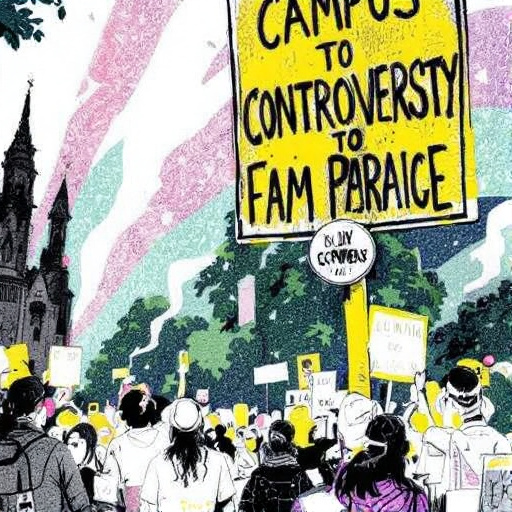Featured Articles
- 8 Ways College Alumni are Revolutionizing Sustainable Urban Development in Emerging Cities
- Alumni Activism: How College Graduates are Shaping the Future of Social Movements and Policy Change
- Alumni as Crypto Investors: Unlocking Hidden Connections Between College Networks and the Blockchain Revolution
- From Campus to Controversy: The Hidden Impact of Alumni Networks on Modern Activism
- "From Campus to Cosmos: How College Alumni Are Shaping Space Exploration and Technology"
8 Ways College Alumni are Revolutionizing Sustainable Urban Development in Emerging Cities
8 Ways College Alumni are Revolutionizing Sustainable Urban Development in Emerging Cities
8 Ways College Alumni are Revolutionizing Sustainable Urban Development in Emerging Cities
1. Innovative Green Architecture
College alumni with backgrounds in architecture and environmental science are driving the creation of eco-friendly buildings in emerging urban areas. They utilize sustainable materials and energy-efficient designs to reduce the carbon footprint of new developments. These alumni-led projects often incorporate renewable energy systems such as solar panels and geothermal heating, which promote cleaner urban living.
The emphasis is not only on reducing emissions but also on improving air quality and natural light availability within the built environment. Alumni often collaborate with local governments to implement building codes that mandate sustainable practices, facilitating broader change across cities.
According to the World Green Building Council, sustainable architecture can reduce energy consumption by up to 50%, showcasing the importance of these alumni efforts in shaping the future of urban development.
2. Advancing Smart City Technologies
Graduates in computer science and engineering are applying smart technology solutions to optimize urban infrastructure in rapidly growing cities. Alumni-driven startups design IoT-based systems for efficient waste management, traffic control, and water conservation.
By integrating data analytics and sensor networks, these smart systems provide real-time information that helps municipalities manage resources more effectively. This minimizes waste and improves quality of life while supporting sustainability targets.
For instance, a Harvard alumni-led venture recently implemented adaptive street lighting in an African city, reducing energy use by 40%, as reported by the International Journal of Smart Cities.
3. Promoting Community-Based Urban Farming
Sustainability-minded alumni in agricultural sciences and urban planning are championing urban farms to enhance food security and reduce supply chain emissions. These initiatives transform unused city areas into productive spaces producing fresh, local crops.
Community-based farming projects also engage local residents in sustainable practices, fostering greater environmental awareness and social cohesion. Alumni often provide training and resources that empower communities to maintain these farms independently.
The Food and Agriculture Organization notes that urban farming can increase food availability in cities by 15%–20%, demonstrating the tangible benefits of these alumni-led programs.
4. Designing Sustainable Transportation Solutions
Alumni from engineering and public policy fields are innovating green transportation models tailored for emerging cities. They develop affordable electric vehicle options, bike-sharing programs, and pedestrian-friendly urban layouts to reduce reliance on fossil fuels.
These efforts help decrease traffic congestion and air pollution, addressing some of the most pressing urban sustainability challenges. By working with local governments, alumni advocate for policies that incentivize sustainable transportation adoption.
A study by the Institute for Transportation and Development Policy highlights that such strategies can lower urban greenhouse gas emissions by over 30%, underscoring the impact of alumni innovation in this sector.
5. Implementing Circular Economy Practices
College alumni active in environmental management promote circular economy approaches to minimize waste through reuse and recycling. They design systems where urban materials are repurposed into new products, reducing landfill dependency.
These initiatives often involve partnerships with businesses and local authorities to create effective recycling programs and encourage sustainable consumer behavior. Alumni-led social enterprises focus on education and infrastructure to boost circular economy adoption in emerging cities.
The Ellen MacArthur Foundation reports that circular economy strategies could reduce global carbon emissions by 39%, demonstrating the critical role alumni play in promoting sustainability at the systemic level.
6. Enhancing Water Management Systems
Graduates specializing in environmental engineering address water scarcity issues by developing innovative water conservation and purification technologies. Their work improves access to clean water while minimizing waste in expanding urban populations.
Alumni design rainwater harvesting systems, greywater recycling, and smart irrigation models that adapt to local climate conditions. These solutions are often deployed in collaboration with NGOs to maximize community reach and sustainability impacts.
The United Nations estimates that better urban water management can save up to 30% of global freshwater use, making alumni contributions essential for future urban resilience.
7. Championing Renewable Energy Integration
Energy sector alumni are facilitating the integration of renewable sources into the power grids of emerging urban areas. They develop scalable solar, wind, and biomass projects that meet growing energy demands sustainably.
These alumni-led initiatives improve energy access in underserved communities, reducing dependence on fossil fuels and lowering greenhouse gas emissions. Many alumni also advocate for policy frameworks that support investment in clean energy infrastructure.
The International Renewable Energy Agency suggests that renewable energy could supply 86% of global electricity by 2050 if such innovations continue, highlighting the transformative impact of alumni work.
8. Fostering Social Equity in Urban Planning
Alumni in social sciences and urban studies emphasize inclusive development to ensure sustainability benefits all city residents. They address disparities by promoting affordable housing, accessible public spaces, and participatory planning processes.
These efforts combat the risk of environmental gentrification and ensure marginalized communities are part of sustainability dialogues. Alumni often partner with local organizations to create educational programs and policy recommendations.
A report by UN-Habitat confirms that equitable urban development enhances social cohesion and sustainability outcomes, validating the importance of alumni leadership in this area.




